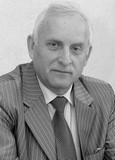Creating a training multimedia course on methodological support of training sessions
Keywords:
educational multimedia course, multimedia creation methodology, training sessions, didactic scenario of material presentation, technological steps of the scenario, multimedia content.Abstract
Objective of the study was to substantiate the methodology for creating an educational multimedia course for a system of training sessions.
Methods and structure of the study. The methodological basis of the study is the theory of multimedia learning developed by the American educator and psychologist Richard E. Meyer, which states that optimal learning occurs when the visual and verbal components of the educational material are presented to the student together and simultaneously.
Results and conclusions. The process of creating a multimedia course consists of several stages: development of a didactic scenario for presenting the material of training activities; development of technological steps of the course scenario; selection of the content of training sessions in the form of digitized elements of what needs to be done in training; concrete creation of an integral system of training sessions of the course based on special computer software; testing and approbation of the multimedia system of training sessions.
Multimedia courses of a sports and coaching orientation have their own specific features, in particular, they contain a component associated with working on sports simulators that imitate real examples of coaching activities, for practicing and “polishing” various special techniques related to sports types of movement (according to sports). Such simulators virtually provide the conditions for measuring numerous indicators and model characteristics of the athlete's physical and psychological state.
References
Vymyatnin V.M., Demkin V.P., Mozhaeva G.V., Rudenko T.V. Multimediakursy: metodologiya i tekhnologiya razrabotki [Multimedia courses: methodology and development technology]. Otkrytoye i distantsionnoye obrazovaniye. 2002. No. 3 (7). pp. 43-71.
Krasnov N.V. Aktualnyye problemy nauchnoy organizatsii obucheniya [Actual problems of the scientific organization of education]. Vestnik vysshey shkoly. 1977. No. 6. pp. 16-26.
Yaglom I.M., Dobrushin R., Yaglom A. Teoriya informatsii i lingvistika [Information theory and linguistics]. Voprosy yazykoznaniya. 1960. No. 1. pp. 100-110.
Mayer R.E. The Cambridge Handbook of Multimedia Learning Second Edition. Cambridge, U.K.: Cambridge University Press, 2009. 320 p.

Downloads
Published
Versions
- 27-04-2023 (2)
- 27-04-2023 (1)

